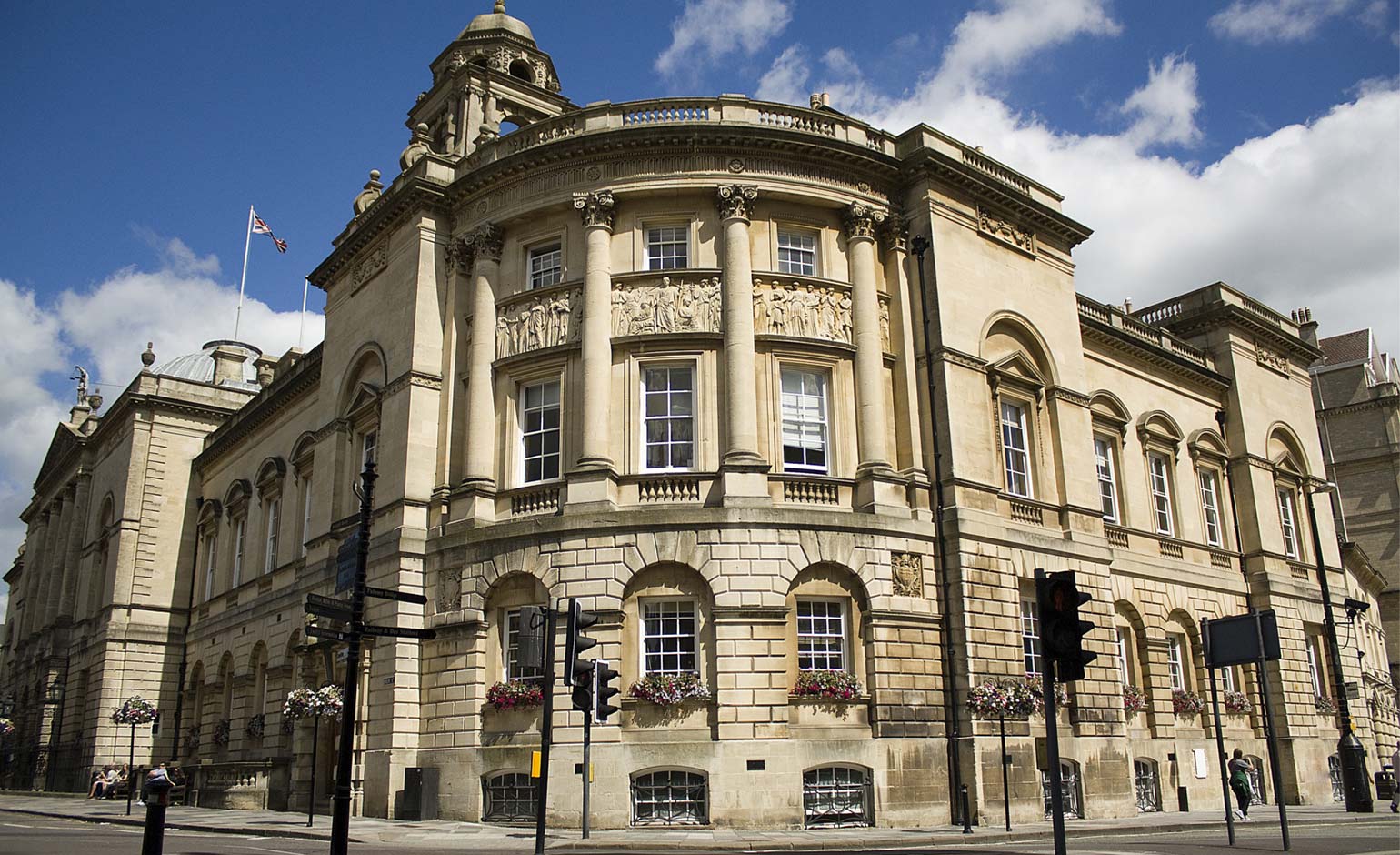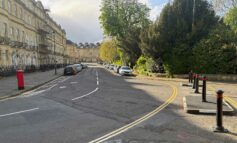Higher wages, more productivity, greener businesses and more affordable housing are at the heart of a report being put before B&NES Council’s cabinet tomorrow, Thursday 1st February.

The Guildhall in Bath
It sets out a new approach to economic development which prioritises the needs of residents and businesses as well as reducing impacts on the environment.
If adopted, it will span the decade from 2024 to 2034 and see a 10-point plan which includes increasing take-up locally of the Real Living Wage and delivering Bath’s Fashion Museum and wider Milsom Quarter Masterplan as a flagship for sustainable development.
The strategy is called Building a Fair, Green, Creative and Connected Bath with North East Somerset Economy.
It has been produced in close partnership with the local Future Ambition Board (FAB), which brings together key organisations, as well as Western Gateway, which is the UK’s first pan-regional partnership, and the West of England Combined Authority (WECA).
Cllr Paul Roper, B&NES cabinet member for economic and cultural sustainable development, said: “In many ways, Bath and North East Somerset’s economy is a success story.
“We have two universities, the Royal United Hospital, thriving market towns, significant businesses, and outstanding heritage and nature sites. Our residents are highly qualified, and unemployment is low.
“However, economic growth in our area over the last 10 years has been sluggish. Because our wages are lower than average, many residents struggle with rising housing costs.
“Growing inequalities in health, employment, and education are creating a two-tier economy; to break this cycle, we need to pursue a sustainable, inclusive model of growth, particularly in the face of the climate and ecological emergencies.”
The new economic strategy has been developed in conjunction with key institutions and businesses, including the city’s two universities.
The University of Bath, which is a FAB member, has welcomed the new approach, saying: “As a major anchor institution, the University of Bath plays a key role in the economic, cultural and environmental well-being of B&NES, contributing £380m per annum to the economy and supporting 5,950 jobs locally.
“The activities of our students, research and innovation activities contribute to B&NES’ wider ambitions for health, decarbonisation of transport and the built environment.”
Bath Spa University, which is also a FAB member, said: “As The Sunday Times University of the Year for Social Inclusion 2023/24, with a commitment to unlocking opportunities for all our 13,000 students, we embody the local, regional and national strategic leadership through partnership working that underpins this economic strategy.
“As one of only five universities with ‘gold mark’ status as a social enterprise, Bath Spa University is fully engaged with the strategy’s aims, including business growth, innovation and opportunity.”
Housing association Curo, which is also on the Future Ambition Board, said it is proud to be a partner supporting B&NES to deliver the new 10-year economic strategy: “As the largest housing association in B&NES, with more than 10,000 homes and an annual turnover of £150m, we understand the major challenges around housing supply and rent levels.
“The very high ratio of house prices compared to incomes impacts residents and employers; we believe that truly affordable housing needs to be a key part of the solution.”
The economic strategy also reflects work already under way, including promoting opportunities for green and innovative businesses at Bath Quays and the Somer Valley Enterprise Zone (SVEZ) at Old Mills, a 13.5-hectare greenfield area on the north-western edge of Midsomer Norton.
Alongside the report on the economic strategy, the cabinet is also receiving reports on the SVEZ. The council’s vision is for it to become the ‘go-to’ place for new and existing businesses in the Somer Valley area.
Commitments include creating good quality jobs for residents that will reduce commuting, improving active travel, ensuring public transport is available and tackling the climate and nature emergency by exceeding current biodiversity net gain requirements which make sure that habitat for wildlife is in a better state than it was before development.
The council says the scheme protects Midsomer Norton High Street, minimises the flow of HGVs on local roads, protects air quality and does not allow any drive-thru food outlets that would add litter to the roads.
Cllr Roper added: “Three decades ago, the Somer Valley was almost self-sufficient in terms of quality local employment, but most of those jobs have been lost.
“The work we have done on the Somer Valley Enterprise Zone is a statement of our intent in ensuring that the council uses its powers and influence to create and safeguard high quality local employment.
“We will ensure we have the land that we need to deliver the scheme and attract new employers, creating employment in a sustainable way whilst protecting and meeting our environmental commitments.
“It is expected that we will deliver in the region of 1,300 jobs which will be transformational for the local community.”



